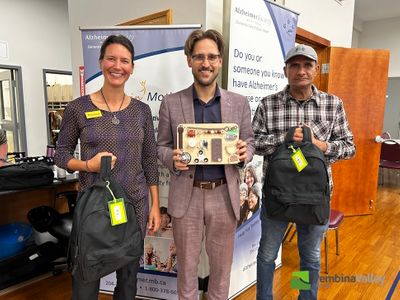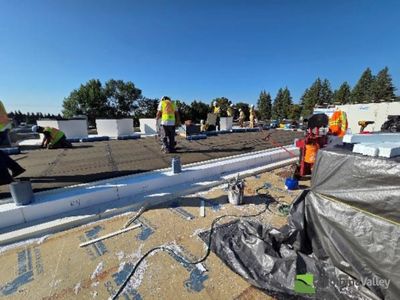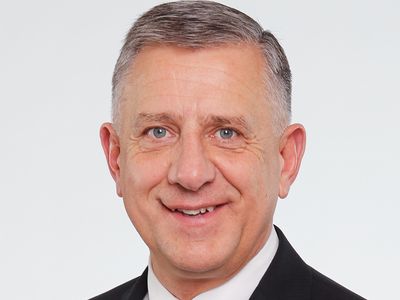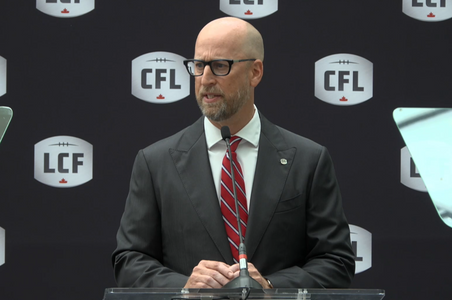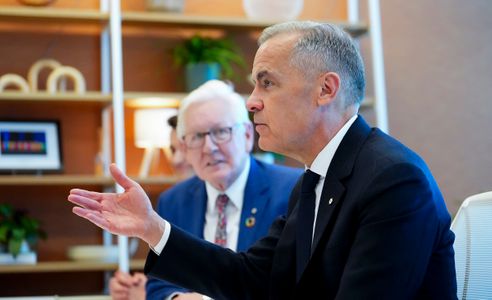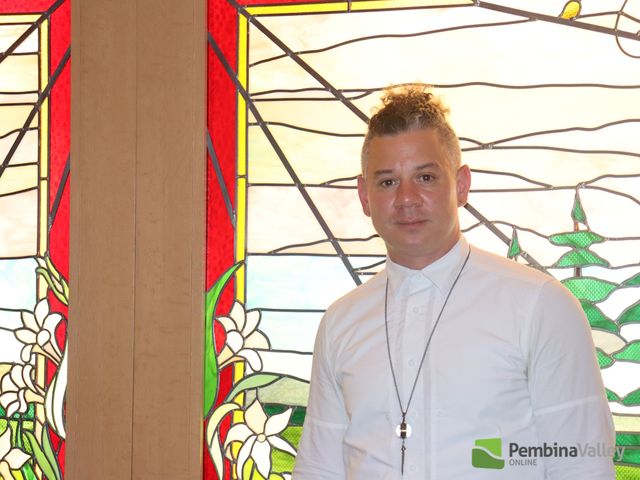Local News
New Spiritual Care Coordinator at BTHC aims to connect with people in a variety of ways
A talk over tea When I walked into the chapel at the Boundary Trails Health Centre (BTHC), a flood of my own memories came rushing back to the times I spent in the hospital many years ago. As I stepped into the room, on a table was a teapot and two teacups ready for our interview. I was excited to meet the new Spiritual Care Coordinator (SCC) since the resignation of Larry Reimer, the former SCC who served BTHC for the last few years. Around the corner came a friendly face with a big smile; it was Justin Majeau, the new SCC, greeting me and quickly pouring me a cup of tea. Who is Justin Majeau? He gave some background on who he is before moving into this role two months ago. "I think the earliest memory I would have is wanting to just connect with people. Like that really is what I've tried to navigate my life and find places where that was happening." His family moved to the area approximately five years ago. "We moved to Winkler in the first year and then found a place in Morden. I love the community. What brought us to the community was my wife. She went through residency in Winnipeg and then said, 'It's time to start a practice or join a practice.' She joined the C.W. Wiebe Clinic and is a surgeon here at Boundary Trails Health Centre." Eager for connection As a pastor, he is excited for this role to move from the pulpit to regular connections with people. "What I like about this position is that I've got all of these kinds of micro connections, and it's more of an interaction, whereas It used to be just kind of a monologue, but now to really interact with people, whether that's patients, staff, people in the community, it's been a good two months." He hopes to tap into what the hospital is already trying to do: to break down barriers and to make sure everyone in the community understands this is their hospital. "My goal then is to help in whatever small way, shape, or form I can and to continue to push that forward where people feel and understand the truth that people want to care for you when you come into these walls and even beyond." Community connections and cultural respect In his first week, Majeau reached out to the Pembina Valley Islamic Society. He said they are very excited at the prospect of working together to ensure the spiritual needs of all patients, staff, and visitors are considered and respected. Plus, BTHC Foundation has recently acquired a cultural resource toolkit created to support Indigenous people when they request access to traditional medicines and ceremonies. Related stories: Most ever raised at Thursday's BTHC Foundation golf tournament BTHC Foundation celebrates 25 years at AGM He explained his thoughts on what spiritual care from him looks like. "I believe everything is spiritual. Everything. Whether it's doing the paperwork, whether it's returning phone calls, whether it's having a conversation like this, I think this is a spiritual act. Whether it's preparing tea for someone or, as some people I think more traditionally would know, sitting down and having a prayer with someone. It is talking through those hard issues of life and sometimes even the good parts of life. So, I try to tap into what each patient does want, and each staff member wants as well, in understanding that it all factors into who we are as human beings." A no-pressure approach He emphasized there is no pressure to believe the same things he does and wants people to know he is there to help them on their journey together, at this time. "I understand that for many people, I'm a part of their story for a very short amount of time. And that's hard. But how can we make the best of this situation together? And sometimes that is prayer. Sometimes, that is talking about their religious beliefs. But sometimes it is just sitting in silence. Sometimes it's talking about the Blue Jays." All it takes is an invitation Some might not know that the Spiritual Care Coordinator will not come visit you until he is invited. "When people come in, they consent to see me, or they're referred by staff. We don't just go into people's rooms and sit by them. That doesn't happen. But I think that there is this idea out there that they're going to get someone who's going to come sit next to them and preach to them. Sometimes we can come to the hospital and just feel horrible about ourselves. So, why sit next to someone who's going to make us feel even worse? I think there's that idea out there that I hope I can begin to show that that's not going to be the case. If you're hesitant to see anyone in this role, you don't have to be, because it will be led by your needs at the time." At the time of this interview, he had thirty-three invitations but admitted the number could be higher. Laying the foundation with collaboration In his short few months at BTHC, he has spent his time slowly building a greater understanding of the role and getting as much advice from his colleagues as possible, one day at a time. He is enjoying the collaboration opportunities to intentionally focus on what's best for each patient. "We're sitting in the chapel right now. And in about an hour, there'll be a meeting where all the staff will come together. There are some of the brightest people in the area. And to see that expertise, that knowledge, that training, all geared towards, 'How can we help this patient? And this patient? And this patient?' It's like all hands on deck just saying, 'Yeah, how can we help them get the level of health that they deserve?'" His biggest hope is to break down barriers so that everyone can understand that BTHC is a safe place where the whole person will be cared for.
